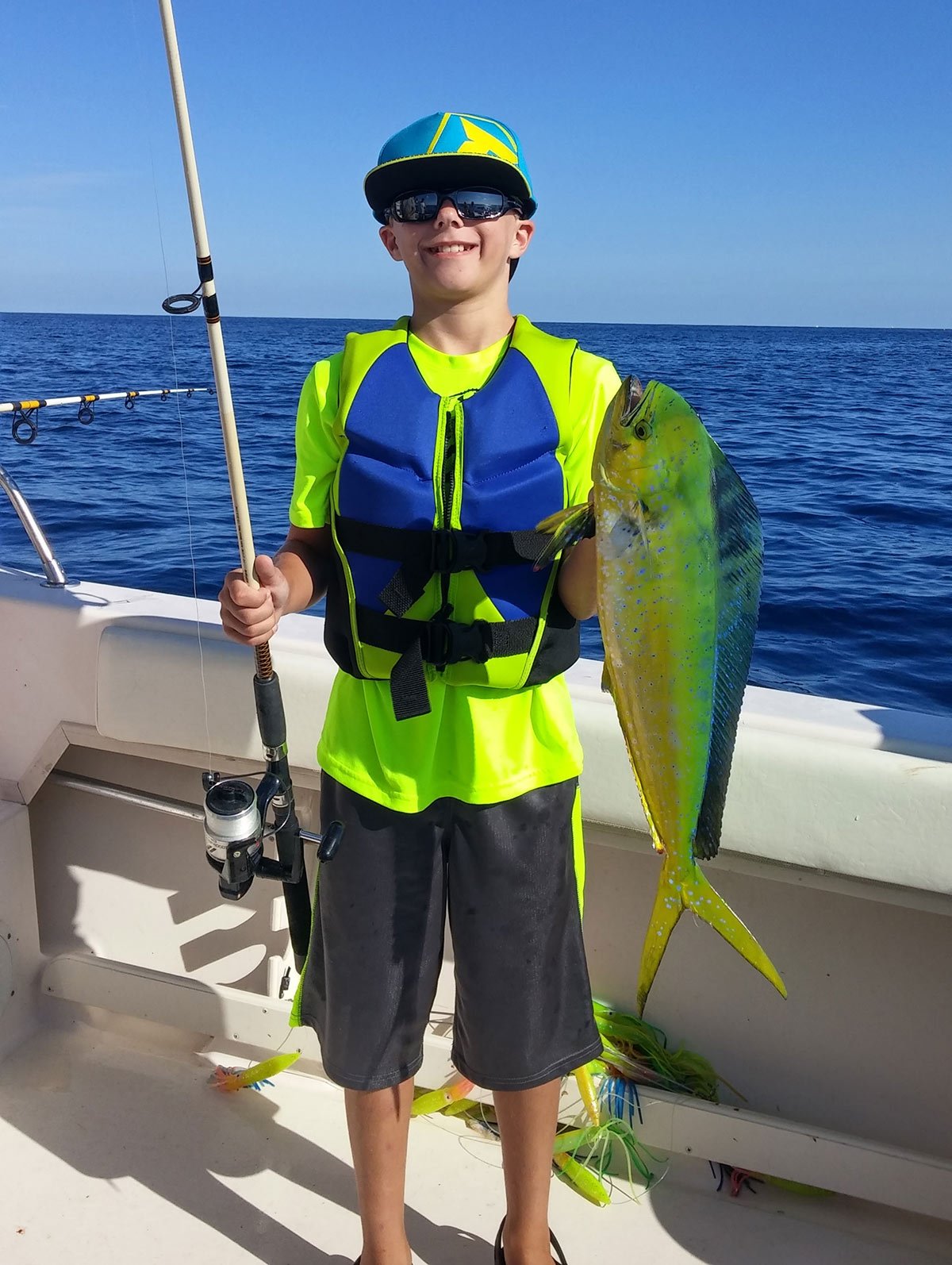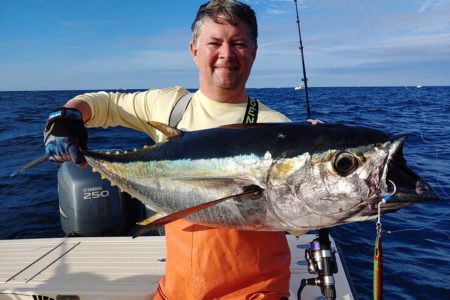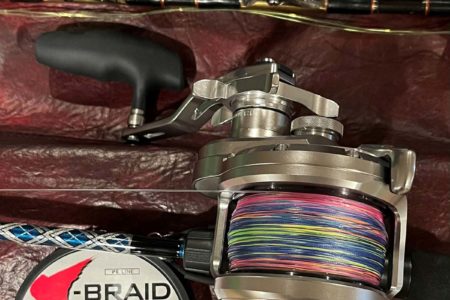
Getting the next generation to the offshore grounds.
From the time my 10 grandchildren could walk, they held rod in hand, progressing from catching perch in the creek, to drifting bays for summer flounder and fishing inlet jetties for various species. When they jumped onboard for offshore trips, there was already a level of confidence they could handle the experience of wreck fishing for sea bass, deep dropping for tilefish or trolling the canyons for tuna/marlin.
I cut offshore teeth before Loran C and was taught to plot a course and run to the location by compass, speed and watch. Seldom did I push past the 20-fathom line. However, with today’s electronics and reliable engine technology, I feel comfortable running the grandkids out to the canyons. However, 60-plus miles is a long way for anyone in any vessel to be offshore. So the question may arise, “Is it prudent or advisable to take children offshore, and if so, at what age?” Only a parent can answer that question; every child is different in maturity, ability and patience when it comes to being cooped up in a cockpit for 14 hours.
I was offshore by age 9, my children age 6 and grandkids age 7. Charter clients often asked about the feasibility of taking children; normally, after a few minutes speaking with the child or children a quick assessment would be made whether a trip offshore was in their future. Many times, near shore fishing options were offered in lieu of running to the canyons. Here are a few suggestions you may want to consider before taking a child offshore.
Charter boats carry Type 1 life jackets. However, they are not very comfortable for a child to wear. A comfortable personal life jacket that’s sized for the child will certainly make the trip more enjoyable for them. And keep the life jacket on at all times, even if not required.
Does the child swim like a fish? Are they comfortable in or around water? On the ocean with no land in sight is no place for a child who is apprehensive around water to get over his/her anxiety. Keep your first trip a few miles off the beach, within sight of land; fish for sea bass, troll for bluefish or drift for nearshore sharks. I never met a kid who did not get excited about fishing for and catching a shark.
Has the child been on a boat before? How do they handle the feeling of motion? Can they play video games or read looking down on their iPad in the back seat of a moving car? If so, sea sickness probably won’t be an issue. Keep in mind, if the trip is on a party boat and the child becomes sick, there is no turning back. However, I’ve found most children handle the ocean better than adults. Take the child for a boat ride in the ocean prior to chartering or running your boat into the deep to see how they handle the swells. Stop the boat and allow it to rock; a rocking boat’s motion is much different than a boat up on plane running.
Obviously when it comes to weather, don’t force the trip on a questionable day. White capped choppy day blowing NE 15 is not fun for anyone and could possibly make the child gun-shy for another trip.
Instruct how to operate the reel before the trip. Trying to learn this with the excitement of a fish on the end of the line does not make for a great classroom. Spend a day fishing in the bay with newbies; it can do wonders before heading out through the inlet.
Children like to do something; give them a task to keep them occupied and involved, and make them one of the crew. This can be anything from watching for marlin to pop up behind the flat line ballyhoo, to picking up the wash down hose and spraying down the deck every time a fish is brought onboard throwing blood and slime everywhere. Eventually they will be stripping down squid and rigging ballyhoo.
Every child wants to “run” the boat. Explain GPS, fishfinder, radar, plotter, compass bearing, etc. It is surprising what they pick up, and sitting at the helm always brings out a smile.
Fishing is fun! Explain beforehand what the child can expect offshore. And if a mistake is made and the largest yellowfin you’ve ever laid eyes on gets snapped off, be happy. It probably just made the child your offshore fishing partner the rest of your life!
John Unkart is author of Offshore Pursuit and Saltwater Tales.




